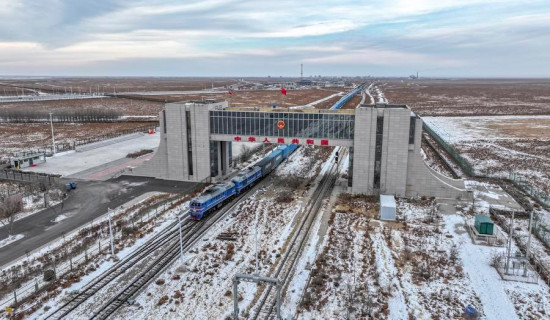- Wednesday, 24 December 2025
Challenges Of Foreign Employment
Nepal is a least developed country. The country is in development backwaters because it has not been able to harness its natural and other resources in a satisfactory degree. The rulers of the country are engrossed in their own party interests or self-interests. It seems that they have no time to think about how to develop the country. So the natural and other resources are going down the drain. Instead of developing agriculture and industry, the rulers are satisfied with an import-based economy backed up by taxes, remittances and foreign grants or loans. As such, job opportunities are few and far between in the country.
Job market
It is surmised that about 500,000 people enter the job market every year. But the government is not in a position to employ them all. That is why many people, especially youths, are forced to migrate to foreign countries for employment. Besides, a large number of people have also migrated abroad for settlement as they do not see any prospects of a better life in the country. According to the 2021 census data, there are 2.2 million Nepali migrant workers working in foreign countries. The male migrant population constitutes 81.28 per cent, while the female one makes up 18.72 per cent.
The successive governments have encouraged foreign employment because the country can earn remittances to prop up the economy. So the government issues work permits in large numbers to the aspiring migrant workers. Most of such migrant workers belong to the 25-35 age group. Nowadays, around 2,000 people leave the country for foreign employment every day. The government has allowed the Nepalis to work in around 110 countries. However, the popular destinations are Malaysia, Qatar, Saudi Arabia, the United Arab Emirates (UAE) and Kuwait. There are also Nepali workers in India, where work permits are not required. There are also Nepali workers working in foreign countries through the informal channels.
Foreign employment has been flourishing for the last few years. There are several factors responsible for this. Lack of job opportunities in the country is the primary factor. Other factors include poverty, agricultural and allied activities remaining in the doldrums and even political instability. Further, they think that living prospects are better in foreign countries. Agricultural production and industrial expansion are at low ebb. As such, imports predominate over exports, resulting in an ever-burgeoning trade deficit. Poverty is more widespread in the rural areas than in the urban ones. So more rural people are migrating abroad to improve their economic condition.
There is no doubt that remittances have contributed greatly to the nation’s economy. Foreign employment has also played a pivotal role in reducing poverty in the country. But for foreign employment, the rate of poverty would have been much higher. So foreign employment is taken as a lucrative business in the country. However, many Nepali migrant workers face difficulties as Most of the aspiring migrant workers are poor. They have difficulty arranging for money. They are forced to take loans from the local money-lenders at an exorbitant rate of interest. The usury scam is a case in point.
The victims of the scam claim that they have to repay the amount of the principal and interest multiple times the original loan amount, and that their property is also confiscated by the loan sharks. However, the government has made a legal provision through an ordinance that the money-lenders violating the provision shall be fined up to Rs. 70,000 and sentenced to seven years in prison. It is yet to be seen whether this legal mechanism will curb loan-sharking. The aspiring migrant workers are always obsessed with going abroad by any means. They do not deem it necessary to be genned up on job conditions, salary, perks and facilities, living conditions, working conditions and the destination country.
It is also important to be updated about the political, economic and social conditions of the host country. Sometimes, they have to do a job different from the one promised by manpower agencies. There are also cases of the people being stranded in foreign lands owing to the malpractices of manpower agencies. Even if they get jobs as promised by manpower agencies, the migrant workers may be exploited at the work place. They are helpless because they may not have legal or social support in the foreign lands although they work hard to contribute to the development works abroad. They do the jobs the people of the host country are not able or willing to do. Worker abuse, forced labour and even trafficking may occur in the foreign lands.
Unnecessary risks
There are also illegal Nepali workers working abroad. They are working taking unnecessary risks. When they are caught, they are clapped in prison. Some Nepali workers have to languish in prison on trumped-up charges. Others are prone to accidents for lack of safety factors at the workplace. Some have to undergo mental sickness and tension. So the migrant workers may be in precarious conditions in the foreign lands.
Recognising the tremendous contributions of the Nepali migrant workers to the economy of the country, the government should take concrete measures to create a favourable environment for the migrant workers and help them out when they are in trouble in coordination with the diplomatic missions abroad. The government should draw a lesson from untoward incidents such as the brutal killing of 12 Nepali workers by an extremist group in Iraq in August 2004 and enhance political diplomacy for the protection of the migrant workers working abroad.
(Maharjan has been regularly writing on contemporary issues for this daily since 2000.)

















